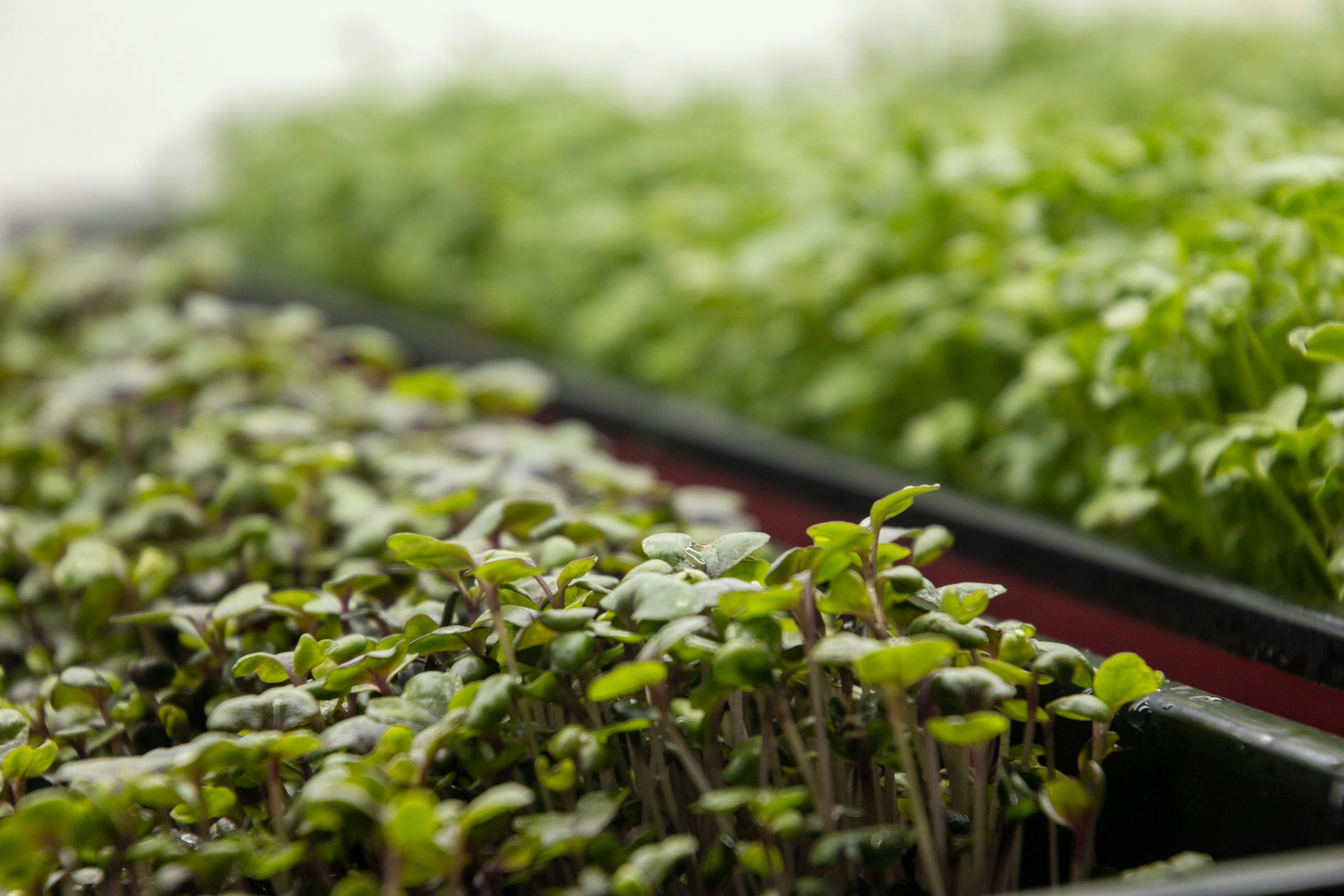· Focus on composting and analysis of existing solutions ·
With 9 months to go before the AGEC law render bio-waste sorting at source obligatory, we look and analyse existing solutions to scale composting
Nature does not produce waste: if we take the example of a tree, the leaves fall to the ground, decompose and then enrich the soil which will nourish the tree and so on.
One of the keys to the circular economy is to cycle materials so that they can be transformed into resources and create a truly virtuous cycle!
The challenges of such nature-inspired cycle are significant:
-
Valorise the bio-waste produced by citizens and companies (our meals & preparation leftovers). One third of our waste bins are made up of bio-waste, so there is plenty of room for improvement!
- Design products that are compostable and that will really be composted.
Composting: how does it work?
Composting is a natural process of decomposition of organic waste using oxygen, water and micro-organisms such as bacteria, fungi and small invertebrates.
These three elements are essential for composting to take place in good conditions and for the quality of the compost materials generated.
Good ventilation allows the bacteria to establish themselves and play their role in decomposition. The actions of the bacteria also lead to a rise in temperature, which allows the compost to be kept hygienic.
After a few months, the compost produced becomes an excellent fertiliser and soil enhancer. It enriches the soil, improves its structure and water absorption… which is not negligible in times of drought!
But be careful, if the compost is not properly aerated, it goes into a state of anaerobic decomposition, which releases methane (a very powerful greenhouse gas) and bad smells.
Designing or buying compostable products: What do you need to know/Are products really recyclable?
-
What if the product is biodegradable?
-
What if throwing away all or part of the product was virtuous?
We can imagine that, like nature, we design products that are all biodegradable and compostable, that they return to the earth at the end of their life. A truly regenerative economy! We are still a long way from this, but already some products, such as bags, packaging, tableware, etc., are labelled “Compostable”.
-
In order for the product to decompose in a home composter, the logo must say “OK compost Home”. This means that the product can decompose even at low temperatures.
-
The “OK compost” logo alone indicates that the product can decompose on an industrial composting platform. It will not work in an individual composter because the compost heap will not rise enough in temperature, the volume and the aeration will be insufficient to decompose the material efficiently.
It should be noted that “OK Compost” products can be composted in an industrial composting facility, but for the moment, they are rarely composted because there is no organised channel. If a private individual buys “OK Compost” tableware and the collection of bio-waste is not implemented on his territory, it will probably end up in the Recyclable bin or in his compost where it will remain intact for months before ending up in the incinerator…
On the other hand, during events (e.g. festivals), the compostable tableware used could be collected and sent to a composting platform. In general, reusable tableware is to be preferred.
-
For “OK Compost Home” bags or packaging, you must also make sure that they are not thrown into the composter with their contents, as is often the case, because the bio-waste will ferment inside the bag instead of composting, thus causing the production of methane and bad smells…
To find out more: the Citizen Compost Network’s fact sheet on the subject, produced with the support of Ademe: https://reseaucompost.org/sites/default/files/2022-10/Fiche-8-compressed.pdf
A subject at the heart of current events
Under the AGEC law, from 1 January 2024, all households must have a solution that allows them to sort their biodegradable waste. The local authorities responsible for implementing this provision will have to offer them joint or complementary means of sorting at source.
Until the end of 2022, this obligation to sort biowaste at source only concerned companies and local authorities whose annual production exceeded 10 tonnes. Since 1 January 2023, this volume has been lowered to 5 tonnes. It will be abolished and aligned with households on 1 January 2024.
The AGEC regulation is part of a European directive published in May 2018. It requires the generalisation of source separation in the other EU countries by the same deadline. Some European countries are already wel ahead of the regulation. This is the case of Austria, the European champion of composting, where 80% of the population already benefits from separate organic waste collection and which is the leading European country in terms of the quantity of composted waste.
Many European cities have been implementing separate biowaste collection for several years now, such as Ljubljana, Copenhagen, London and Milan. Outside Europe, the city of San Francisco has been a pioneer. Since 2009, bio-waste is collected and then composted in platforms to enrich the vineyards!
How advanced are French local authorities with nine months to go before implementation? They are working hard on the subject, but few will really be ready on time… Different strategies are adopted depending on the area: while rural or peri-urban areas opt for all composting, urban areas may opt for all collection and others for mixed solutions combining the two approaches.
A solution for every scale
To implement source separation, the easiest, cheapest and most environmentally friendly solution is home composting: for the past 15 years, many local authorities have been offering their residents a compost bin for their garden with a quick training course. Many composters have been distributed to date.
In urban areas, there are shared composting sites at the foot of buildings or in the neighbourhood. This is a relatively suitable solution for small communities or condominiums, but it has its limits in dense city centres or for large producers of bio-waste.
On a larger scale, it is the collection that takes over with the implementation of new circuits and treatment methods: sending to a composting platform or methanisation.
Composting platforms can be industrial in size or much smaller, with end-of-field composting, for example, at farmers’ sites. Methanisers can be used to obtain biogas and digestate, a solution that seems interesting for providing a new source of carbon-free energy and a fertiliser for the soil.
However, in the current state of knowledge, the digestate obtained seems less interesting from an agronomic point of view than compost (in particular, it does not contain the soil microfauna) and its value varies greatly depending on the inputs methanised.
A sector that is structuring and developing
In view of the issues at stake, the sector has become more professional and structured in recent years with the Ademe (French governement agency for sustainable development), in particular with the structuring of a reference framework and a professional training course.
The profession of master composter has emerged to support local authorities in implementing composting, and new companies and solutions have been developed and continue to emerge in the territories:
-
to support the development of composting among local authorities or large-scale producers: numerous associations and companies belonging to the Compost citoyen network, the Compost in situ network or the Alchimistes.
-
to propose new composting equipment – e.g. Upcyle with its electro-mechanical composter, Complementerre with the mobile composter.
-
to facilitate the monitoring of composting or raise awareness via digital tools – e.g. Epigées‘ local composting monitoring software, Organeo’s serious game.
Article written by Isabelle Clouet, member of the Circulab community, with the collaboration of Romain Crochet, trainer of the SCOP Les Epigées, based in Chambéry. Isabelle is co-founder of Compost’Action, an association for the promotion and development of local composting, and has worked there for 10 years.
In 2022, the association became the SCOP Les Epigées, it operates in the 2 Savoie regions and has a national influence on the training of composting actors.



